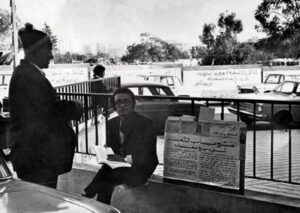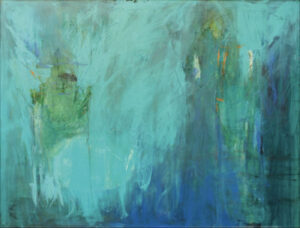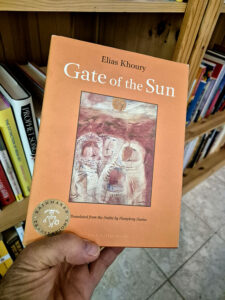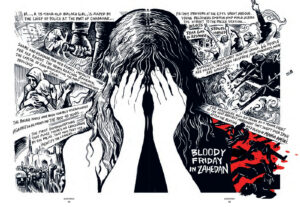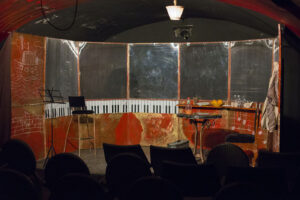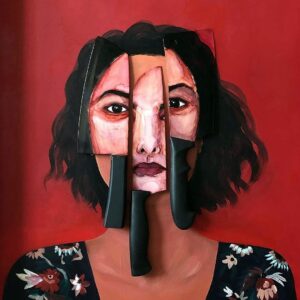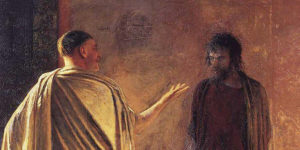Back in the 1980s, a new girl briefly joined my Scout troop. Her name was Mariam, and she was “different.” She wore a hijab, and it made her too noticeable in the eastern Christian suburb of Beirut where I grew up during the civil war. We knew she wasn’t “one of us.” “She’s a Muslim,” we would whisper to one another, as if saying, “she’s a serial killer.” I don’t think we had any understanding of what a Muslim was, except for “not Christian,” and thus, “enemy.”
It actually didn’t matter who Mariam was under that label of Muslim. It didn’t matter that she was kind, outgoing and helpful. It didn’t matter that she never came to our meetings without bringing some tasty kaak that her mother had baked for us. We’d ignore Mariam and leave her to sit by herself in one corner of the room, as if she had the plague. It amazes me to this very day how mean we were to her.
Mariam liked me. She told me so. And I liked her too. But I didn’t dare show it. I was too eager to fit into my group. A few months later, her family moved back to their village in southern Lebanon, which they had temporarily fled after one of the numerous vicious Israeli attacks on the region. We didn’t see her or hear from her again, and the despicable homogeneity of our scout troop was restored.
More than three decades years later, I ran into Mariam in a café in Beirut. By then, I had long ago emancipated myself from all the brainwashing I’d been subjected to as a kid, and most importantly, from the childish, cowardly need to “blend in.” The first thing I did was apologize to her for what we put her through. We became close friends, and we still are to this very day. Below is a fictionalized account of a story she wanted to share with me and with readers when I told her I was interviewing women from different backgrounds and countries about some of their most challenging experiences in life.
Mariam, I know you forgave me, but I don’t know if I will ever be able to forgive myself. I cannot say it enough: I am sorry.
J.H.
I remember everything as if it was yesterday. His face, and how it would light up a whole winter sky; his grin and all the languages hidden underneath it; the way he gazed at me from afar, as if I were some kind of fantastic beast that scared and bewitched him at the same time. Our families were neighbors in one of the many forsaken villages of southern Lebanon, and we went to the same school, but he was two grades ahead of me. The primary classes weren’t gender segregated, only middle and secondary were, so we’d play together during recess. His mom would tell my mom that he would fall sick whenever I missed class, and they’d laugh at us with a mix of compassionate tenderness and bitter melancholy. He was my only friend. Yet he never spoke to me. He never spoke, period. He was born mute. But I heard him.
Issam had strikingly green and expressive eyes, as if biology had gifted him with them to make up for his lack of a voice. He would leave me little gifts on my school desk almost every morning. A strange wildflower he’d picked, an autumn leaf in the vague shape of a heart, a half-deflated pink balloon, a peach he’d stolen from his parents’ fridge. We were so innocent that not even my father would protest whenever he saw us holding hands. Up until the fateful day a hijab was wrapped around my tiny head.
It was the eve of my eighth birthday, and all the women in the village came together to celebrate and congratulate me. Each woman had something to tell me, a piece of advice or an instruction on how to wear the hijab or be “worthy of it.” So many big words were pronounced. Modesty. Chastity. Virtue. Integrity. Purity…. One woman praised my “decision,” another my “choice.” What decision and what choice? I hadn’t decided nor chosen anything! I was just standing there, utterly confused amidst the tumult, torn between feeling happy that I was apparently being thrown some kind of a birthday party, which had never happened before, yet also slightly sad because I loved my black locks. They were the only thing I actually liked about my appearance. I didn’t understand why they had to be hidden.
Later on, I understood. “Decision,” you say? “Choice?” Almost nothing of what we women experience during most of our lives is a decision or a choice we make for ourselves. Even when we think we’re the ones deciding or choosing, it’s sheer illusion, induced by brainwashing or internalized stereotypes or deep-rooted traditions. Even when we think we are “doing” things, these things are merely “happening” to us. This applies to women of all nationalities, all backgrounds, all races, all religions, all age groups. We are, sometimes knowingly but mostly unsuspectingly, marionettes. The hand that controls and moves our strings? It almost always belongs to a “he.”
“Inshallah my daughter is next!” I heard a woman pray that evening. As though God had any say in it! No, that worship of disappearance was all about the social order and had nothing to do with the divine.
After my hijab “makeover,” Issam and I weren’t allowed to be alone together anymore. Holding his hand now, I was told, would for some mysterious reason make me “dirty.” We couldn’t go fig picking in the summer mornings like we used to, nor play games where any kind of touching was involved. I resented it. And he did too. With the loud silence that was one of his extraordinary powers. Yet he went on leaving me gifts on my desk, and I went on dreaming about him. He’d also write me small notes that he’d slip under my bedroom window in the evening. Two years later, his parents moved to another town, on the other side of the country, where his dad had found a job with the UN. And that was the end of it. I never heard of Issam again. For a long time, I felt an incommensurable pain in my chest every time I thought of him. But I endured that pain and lived with it and even learned to love it. After all, I was Lebanese. And a female. And a southerner. Pain was my precious stone.
One day, I must have been ten or eleven then, I found a small silky violet scarf out in the field where I used to help my parents farm tobacco. It had probably flown off the neck of a passerby in a speeding car. I took it and hid it carefully in the back of my drawer, as though it were a sacred object. It had an inebriating scent of lily that became emblematic of liberty for me. The scent faded over time but I still held on to that vibrantly violet scarf, as well as all the promises it contained. Every time I felt disheartened or sad or frustrated or cornered, I’d wait to be alone, furtively open the drawer, take the scarf out, touch it with my tiny fingers that were rough beyond their years, ruined by so many seasons of spearing tobacco leaves onto sticks, and dream my favorite dream: that of being in another world, another time, another body…
Another life.
Many years and many hardships later, I moved to Beirut, and the first thing I wanted to do once I got there was to take off my hijab. It wasn’t a gratuitous act of rebellion, or out of any sense that the hijab was “oppressing” me. I knew better than to believe that the biggest obstacle between a woman and her freedom was a mere piece of cloth on the head (if only it was that easy!), but I nevertheless intensely hated that thing. I hated it for many reasons, the first of which being that it had been inflicted pain on me at such a young age. I also hated it because, just like many other religious edicts I was force-fed, I couldn’t understand, as a kid, the logic behind it, nor, later in my life, tolerate the unfairness it seemed to represent, demanding chastity and obedience only from women instead of men. But I also knew by then that rationality and fairness cannot cohabitate with religion. To make things worse, my headscarf was black — in my kind of family, it just had to be black — and I hated the color black even more than I hated my hijab. Black reminded me painfully of all the beautiful colors that had been denied me during my adolescence; all the colors of nature, of the sky, of fashionable clothes in magazines, all things whose enjoyment had been denied me.
The first time I went out into the streets of Beirut without my veil, I felt so awkward and self-conscious that I immediately turned back and went home again. I was trembling, not out of fear, but frustration. I realized, like I had so many times before, the difference between decision and action, between thought and practice. That “thing” had become such an intrinsic part of my identity, of my being, of how I saw myself in other people’s eyes, that I couldn’t take it off without feeling utterly naked and vulnerable. “This headscarf is your honor,” I’d been told, over and over again. “It’s what keeps you pure and protected.” And even though I knew intellectually that it wasn’t and didn’t, I had a hard time actually embodying the same logic.
I can’t forget, back when I was still studying at Dar el Mou’alemeen in Sidon, the day that Reem, a classmate of mine with whom I hit it off as early as the first week of college, insisted that I accompany her to a so-called “ladies beach” in Khalde. It was one of those beaches specifically for veiled Muslim women, so that they could enjoy the sun and the sea without the “sinful” presence of men. I’d never even tried a swimsuit on before that day, let alone owned one, but Reem told me not to worry, that she’d lend me one of hers.
We took the bus from Sidon on a Thursday morning and went to the Al Ghadir Ladies Resort. Entering that place was like entering the Muslim version of paradise: Tens and tens of mostly attractive young women — the famed “Houris” — unapologetically displaying their bodies, carelessly parading or lying down in their tiny bikinis, many of them even topless, my friend Reem included. Nowhere else in Lebanon could a woman swim and tan topless! I imagined a man walking in there by mistake: the poor guy would doubtless think he’d died and gone to heaven. “Where’s that river of wine?!” he would shout. I felt torn between a strong urge to laugh at my thoughts, and an overwhelming amazement at the sight before my eyes. Yet despite everyone’s nonchalance, I couldn’t bring myself to put on the swimsuit Reem had brought me. I just sat in the shade with all my clothes on until sunset. That’s when all the half-naked women filed out, having been, after a quick visit to the lockers, transformed back into the virtuous, covered young ladies they were expected to be. Jannah was shut down for the day; it was time to go back to hell. I decided never to return to that place again. It had depressed me more than it had cheered me up. “Either everything, whenever and wherever and however I want, or nothing. If I ever wear a swimsuit, it will be at a normal, mixed beach, not one where I’m supposed to hide from the big bad wolves who will ‘soil’ me with their lusty gazes,” I promised myself that day.
When I took the decision to remove my headscarf a few years later, I had a hard time going through with it, even long after I had mentally and rationally allowed myself to. My emotional bond with it was overpowering. As much as I loathed it, I was equally attached to it and in need of it in order to feel “whole,” one with myself. “Maybe it was the umbilical cord that united me with my mother,” I told a therapist one day, trying to make sense of it. “Maybe, by letting go of the headscarf, I felt I was abandoning her. It was as if I was telling her: I will not become you. As if I couldn’t liberate myself without forsaking her, or even killing her, at the same time.”
“You’re right. You couldn’t,” the therapist replied simply.
We must outgrow certain people just like we outgrow certain clothes, places, ideas. They become too tight for us, almost suffocating, but seldom do we have the courage to separate from them. We feel guilty, we feel treacherous and disloyal and egotistical. We even feel ashamed, as if we were “throwing them away” and leaving them behind. As we sail away from those people, whether they are friends or lovers or even family members, it is parts of ourselves that we are peeling off, like stiff layers of onionskin holding us back from our ultimate, core self. Layers that we must remove, gently but surely, no matter the cost. This process is excruciating, but necessary. It is also the exact opposite of treachery: a brave act of loyalty towards oneself and the other. No butterfly ever asks itself: “How can I leave the larva that I was behind?” It just pushes its way out of the cocoon, spreads its wings, and flies away.
But we don’t only need to shed our past selves in order to grow. We also, we especially, need to shed our mothers. We don’t really leave that uterus the second we are born. We only leave it, if we ever leave it, the day we look in our mothers’ faces and refuse to see ourselves.
And so, despite the difficulty, I was intent on winning my battle with the hijab. I thus trained myself to remove it gradually, first just to stand outside my building, then to walk down to the end of the block, then for a full day of errands, like a child learning how to be in the world one step at a time. But every step forward was followed by ten backwards. I was like Sisyphus, carrying that rock up to the top of the mountain, only to have it roll back down every time. And just like him, I would start again the next day. It took me six months, three weeks and five days to break the bond completely. The first time an outdoor breeze ruffled my black locks without causing me to shiver or feel self-conscious, a tremendous wave of joy invaded all of my being. “I smell lilies!” I thought. “Finally!” I ran my fingers through my hair and smiled at the world. And the world smiled back.
Now I could hold anyone’s hand without ever feeling dirty again.
Visit artist Reem Moasher’s Instagram page for more fine art.



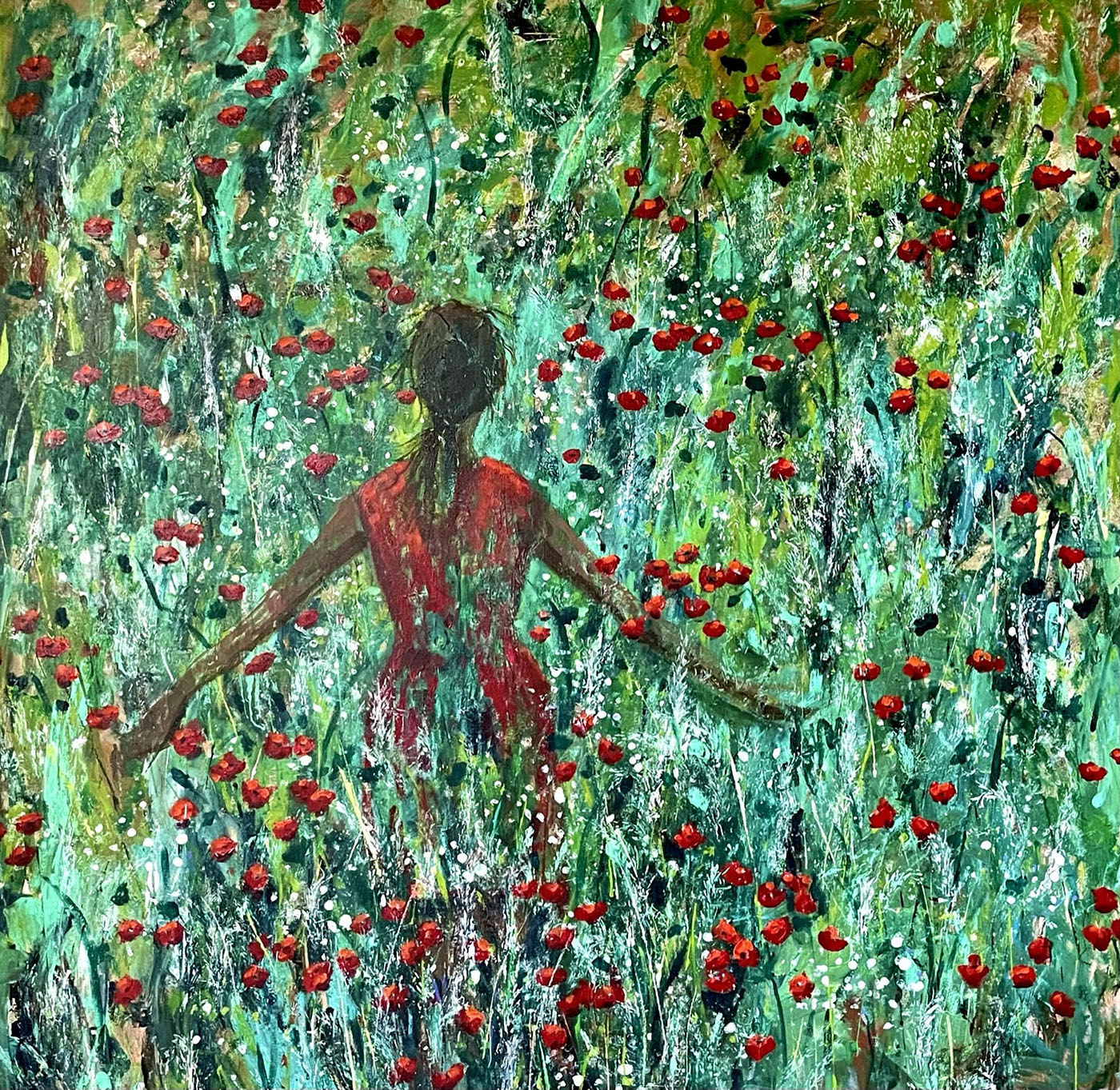
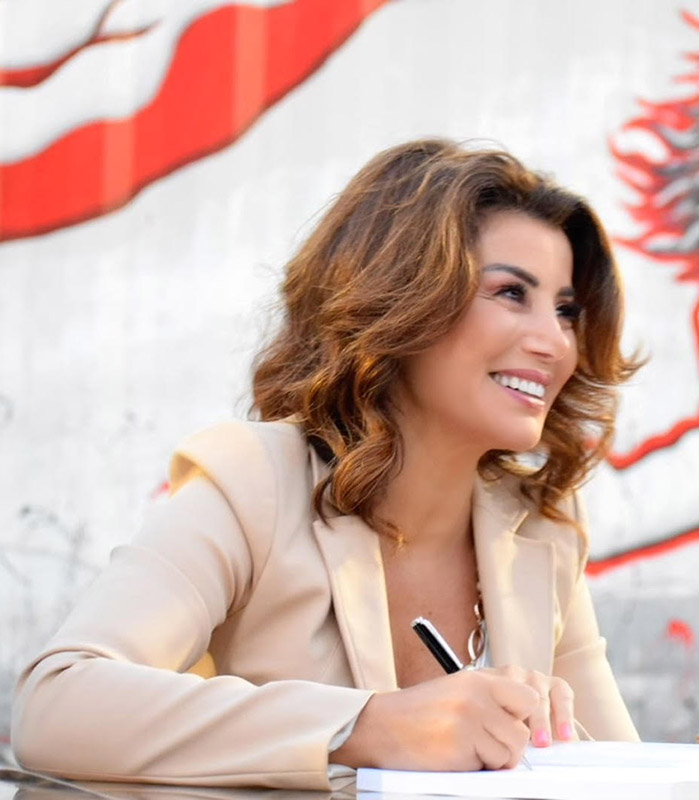



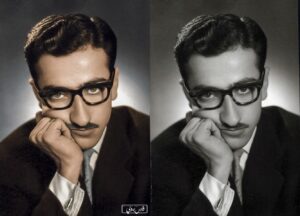


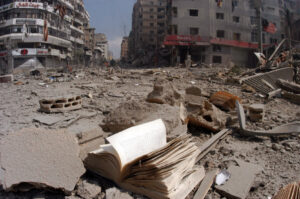



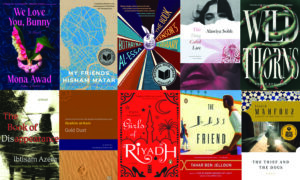
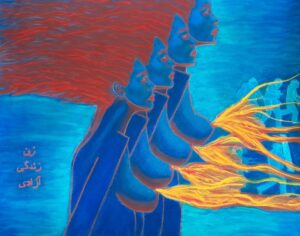
![Ali Cherri’s show at Marseille’s [mac] Is Watching You](https://themarkaz.org/wp-content/uploads/2025/09/Ali-Cherri-22Les-Veilleurs22-at-the-mac-Musee-dart-contemporain-de-Marseille-photo-Gregoire-Edouard-Ville-de-Marseille-300x200.jpg)










